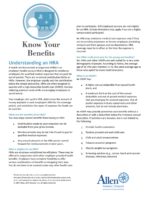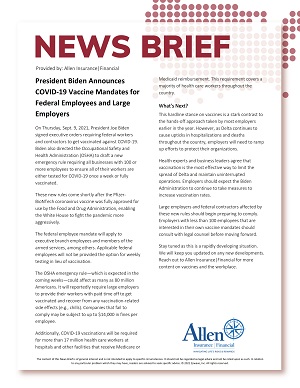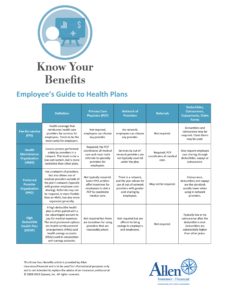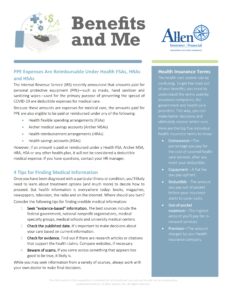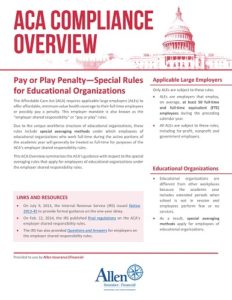Allen Insurance and Financial is offering a series of Medicare 101 workshops in September. We hope you can join us.
All workshops are free and open to everyone, though registration is required. All will be offered via Zoom and run from 5 to 6:30 p.m. Zoom information will be send upon registration. Here is the schedule, which is also available online at AllenIF.com/Medicare.
- Tuesday, Sept. 13: Register via email with Hope Library at hopelibrary04847@gmail.com.
- Wednesday, Sept. 14: Register with Medomak Valley Adult Education; register at msad40.coursestorm.com.
- Thursday, Sept. 15: Register with Belfast Adult Education; belfast.maineadulted.org.
- Wednesday, Sept. 21: Register with Five-Town Adult Education (Camden Hills): fivetowns.maineadulted.org
- Wednesday, Sept. 28: Register with Medomak Valley Adult Education; register at msad40.coursestorm.com
During these workshop, Jo-Ann Neal and Anna Moorman of Allen Insurance and Financial’s Benefits Division will help answer questions, including:
- What does Medicare cover?
- What does Medicare NOT cover?
- When can I enroll in Medicare?
- What is a Medicare Advantage Plan?
- What is a Medicare Supplement Plan?
- What plan is best for me?
Anna Moorman and Jo-Ann Neal specialize in Medicare and will be available for a question and answer session following the presentation. Meet Anna and Jo-Ann in this YouTube video.



